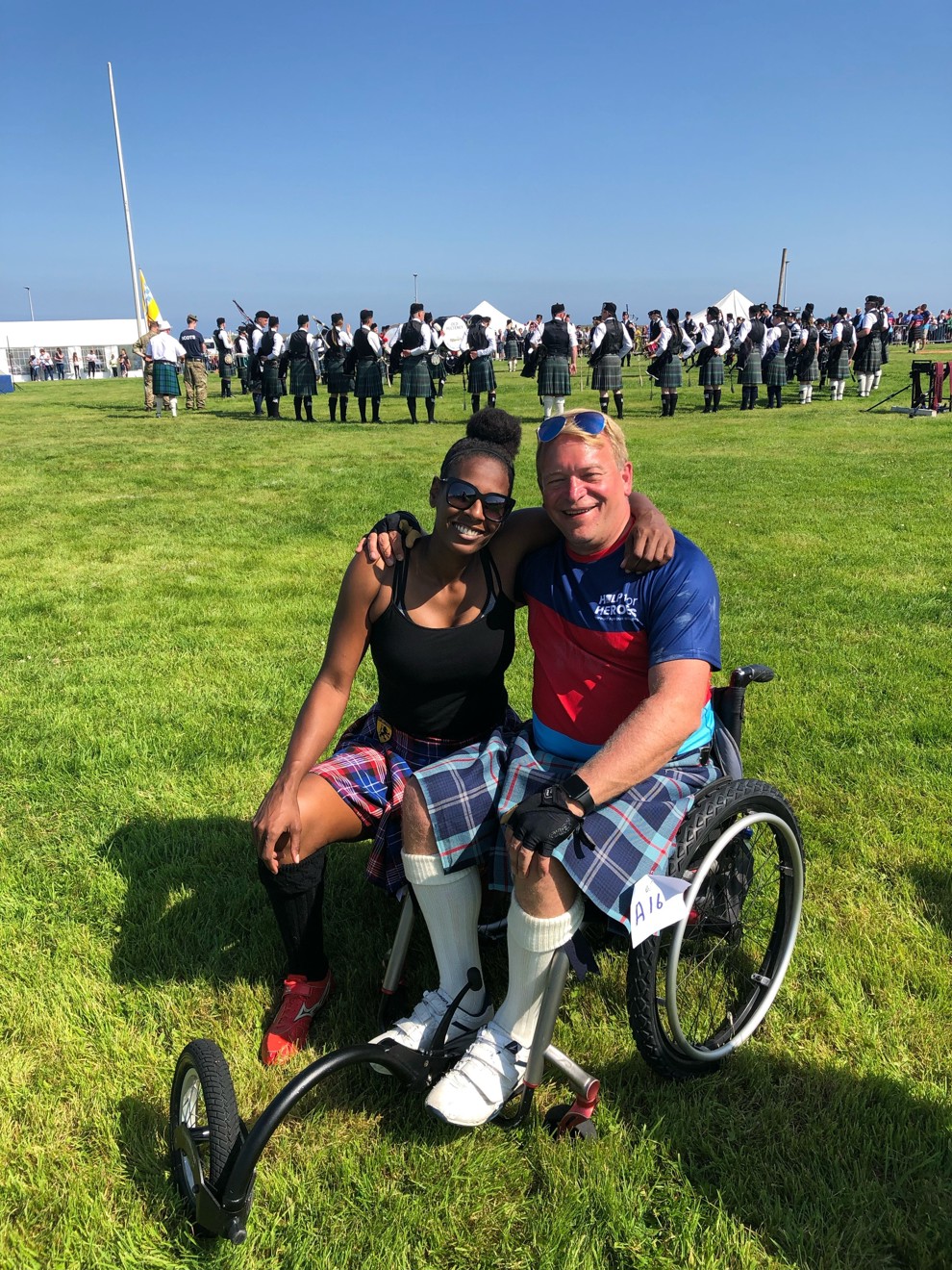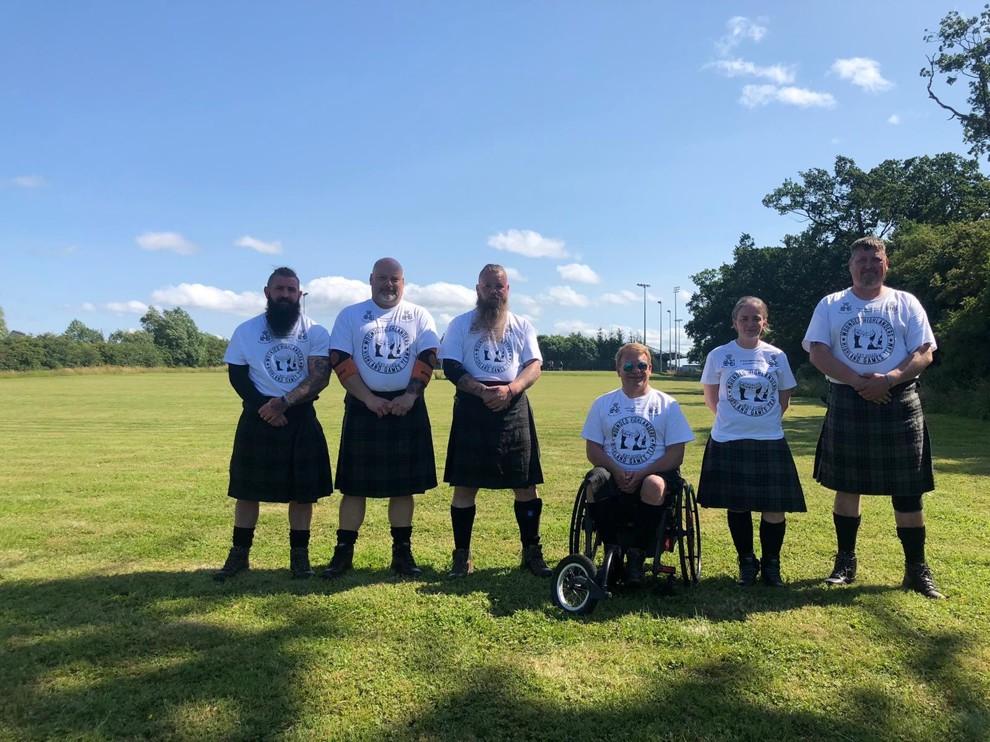A team of injured veterans are campaigning to make the Highland Games more inclusive for competitors with disabilities.
Originally held to allow clan chiefs to select their strongest warriors and swiftest messengers, the tournaments now attract athletes and spectators from around the world. However, competitors with disabilities only competed for the first time in 2018.
Injured veterans have now formed the Wounded Highlanders, a team that became associated members of the Royal Scottish Highland Games Association (RSHGA) in 2020. The team currently has 30 athletes and adaptive and sport specific coaches, and aims to grow to encourage more athletes with disabilities to take part.
“A couple of years ago, a group of injured veterans and service personnel went to the Mey Highland Games at the invitation of the Royal Scottish Highland Games Association,’ said David Dent (above). “Other wheelchair users admitted that they didn’t think they could compete at this level until they saw us participating. Since then, veteran Jim Holborn has worked hard to set the team up and has been in regular contact with the RSHGA to push for more inclusivity for disabled competitors.”
Having started with no funds or support except from friends and family, the team were invited to the Stirling Highland Games this year. Blesma Member David Dent, who suffered two injuries while serving as a frontline trauma specialist and now uses a wheelchair, competed in 2019 as well as in this year’s Games.
“Some of the team members set world records and, as a seated athlete, I am one of the few people who has tossed a caber from a wheelchair. Sometimes people equate disability with weakness but it’s about adapting. We are in the very early stages, but we are hoping to encourage other teams around the world to take part.”
For more on the Wounded Highlanders visit www.woundedhighlanders.co.uk or find them on Facebook and Instagram


We can help
We are dedicated to assisting serving and ex-Service men and women who have suffered life-changing limb loss or the use of a limb, an eye or sight. We support these men and women in their communities throughout the UK. Click the link below to find out the different kinds of support we offer.
Get Support
Leave a comment
Join fellow Members and supporters to exchange information, advice and tips. Before commenting please read our terms of use for commenting on articles.